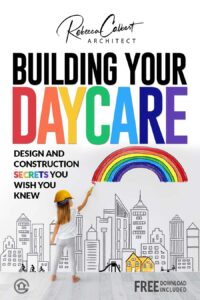Imagine you’re setting up an after-school program and you’re unsure about the kind of daycare toys required to keep the children engaged and ensure a fun, enriching experience. This article sets out to simplify your predicament by providing a comprehensive list and explanation of essential daycare toys that are not only entertaining but also helpful in their developmental growth. From sensory toys that foster cognitive development, creative toys that spark imagination, to active toys that promote physical health, this article will guide you in creating an interactive and fulfilling play environment in your after-school program.
Understand the Importance of Daycare Toys in After-School Programs
Childcare doesn’t end when school does; afterschool programs play a critical role in shaping a child’s development and experiences. A key component of an enriching afterschool environment involves the use of toys. But first, let’s delve into understanding their importance.
Role of toys in child’s development
Toys are not just playthings. They are instrumental in promoting a child’s development. They stimulate imagination, facilitate motor skills, enhance cognitive abilities, and help build social skills. Whether it’s a plush doll or a set of building blocks, every toy serves a purpose. It is through toys that children experience different aspects of life, from role-playing everyday scenarios to building imaginary worlds.
Importance of selecting the right toys
You may think of a toy as a simple plaything, but choosing the right one for your daycare can have a significant impact. The ‘perfect’ toy encourages children’s curiosity, imagination, and creativity, while also fitting their developmental needs. It should challenge their minds but not cause frustration. It should be durable, safe, and engaging. Toys too simple may bore children, while overly complicated ones can deter exploration and the joy of discovery.
Impact of toys on social interactions
Toys can subtly teach children how to interact with others. Playing with toys can help children understand how to share, collaborate, and empathize with their peers. Take, for example, a play kitchen set can initiate conversations and negotiations among children deciding who gets to play the chef or the customer. Toys can encourage children to forge bonds, learn about conflict resolution, and comprehend social niceties.
Identifying Toys Suitable for Different Age Groups
Understanding developmental stages of children is integral in selecting appropriate toys for your daycare. Let’s explore this with respect to different age groups.
Toys suitable for children aged 3-5 years
At this stage, children are developing motor skills and starting to think creatively. Look for toys that reinforce these. Examples are simple puzzles, shape-sorters, building blocks, and pretend play items like dolls, play food or animal figures.
Toys suitable for children aged 6-8 years
Children in this age group are beginning to grasp complex ideas and are refining their social and problem-solving skills. Great options that cater to their development include board games, arts and crafts materials, and construction sets.
Toys suitable for children aged 9-12 years
As older kids start to master their skills, they appreciate challenges. Toys that require strategy, creativity or help them explore areas of interest are ideal. These could range from advanced puzzle sets and science kits to sophisticated Lego sets and sports equipment.
Essential Toys for Physical Development
Physical play is crucial for children’s growth, coordination, and general health. Here’s how you can facilitate it.
Outdoor play toys
Afterschool means outdoor fun! Items like tricycles, sand play sets, or even a climbers and slides can encourage outdoor interactive play.
Sports equipment
Ideal for older kids, sports equipment like soccer balls, hula hoops, and skipping ropes not only aid in motor skills, but instill a love for physical activity and team sports.
Activity-based toys
Activity toys like swing balls, or jumping frogs, promote hand-eye coordination and motor skills whilst also burning off that extra energy that kids seem to have an endless supply of!
Toys to Enhance Cognitive Skills
Toys do more than entertain; they can be a powerhouse for learning. Here’s a look at some which can help boost cognitive skills.
Puzzles
Puzzles are a great way to challenge children’s problem-solving skills. They foster concentration, teach about shapes, and give a sense of accomplishment when completed.
Strategy games
These help children build logic, reasoning and strategic thinking. Whether it’s a game of chess or tic-tac-toe, strategy games encourage critical thought process.
Educational board games
Games that involve numbers or letters such as Scrabble or Uno also offer an element of fun while enhancing cognitive skills.
Creativity Boosting Toys
Creativity and imagination are critical elements of a child’s growth. Here’s how you can nurture these with specific toys.
Arts and crafts materials
From creating their own masterpiece with paint and brush to constructing an ornament with beads, art and craft materials allow children’s imagination to run wild.
Musical instruments
Whether it’s a mini-piano or a humble tambourine, musical instruments help children express themselves, enhancing their auditory and rhythmic skills.
Building blocks and Lego
Constructing builds patience, persistence, and creativity. Blocks or Lego sets varying in complexity can meet the needs of different age groups.
Toys for Improving Language and Literacy Skills
Boosting language and literacy skills is a crucial part of early education. Let’s explore how it can be done in a playful manner.
Story and picture books
Books are an excellent way to enhance vocabulary and comprehension. Picture books can also encourage storytelling skills in younger children.
Alphabet and number toys
Alphabet and number toys serve as friendly introductions to the world of language and mathematics for younger kids, helping them grasp these fundamental concepts better.
Language learning games
Games that involve word creation or language use can be fun and educational at the same time, making learning a new language or enhancing vocabulary enjoyable.
Toys Promoting Social and Emotional Learning
Toys are an excellent medium to teach children about managing emotions, collaboration, empathy, and more. Here are a few examples.
Role playing toys
Role-playing toys like dolls, animal figures, or pretend sets allow a child to understand different perspectives, emotions, and scenarios, teaching them empathy and social understanding.
Board games
Board games are excellent tools to teach children about teamwork, fairness, and handling victory or defeat gracefully.
Interactive toys encouraging group play
Toys like building blocks or art material that invite collaboration can help children understand how to work together, share, negotiate, and even resolve conflicts.
Safety Considerations When Choosing Daycare Toys
As much as we want toys to be educational and fun, their safety is paramount. Here’s what you need to be mindful of.
Checking for small parts and choking hazards
Always check toys for small parts that could be swallowed by children, especially for the younger ones. Tug at parts to ensure that they are securely attached.
Ensuring toys are non-toxic
Toys should be free from harmful chemicals. Always check the labels to ensure they are non-toxic and meet safety standards.
Monitoring toy condition for any damage
Regularly inspect toys for any breakage, loose parts, or sharp edges that could potentially harm a child. Discard any damaged toys immediately.
Maintenance and Cleaning of Daycare Toys
To ensure safety and longevity of daycare toys, regular maintenance and cleaning are vital.
Regular cleaning and disinfecting
Toys should be regularly cleaned and disinfected to prevent the spread of germs, especially in a communal setting like a daycare. Follow cleaning guidelines provided by the toy manufacturer.
Proper storage
Organized storage not only helps in extending the toy’s life but also teaches children responsibility. Ensure toys are stored in a dry, safe place after use.
Checking toys for wear and tear
Regularly check toys for any signs of wear and tear. Repair or replace them as needed to prevent any potential injuries.
Creating an Inclusive Toy Selection
An inclusive toy selection ensures all children feel represented and included in play, regardless of their gender, race, or special needs.
Toys that promote diversity
Toys that represent different cultures, races, and family structures can help children appreciate diversity, instilling respect and understanding from a young age.
Gender-neutral toys
Toys should cater to all children, not defined by girls’ toys or boys’ toys. Offering a gender-neutral toy selection breaks stereotypes and offers equal opportunities for play.
Toys for children with special needs
Selecting toys that are adaptable and can be enjoyed by children with different abilities ensures every child can participate in play, promoting inclusivity.
Whether it’s fostering cognitive development or promoting social skills, toys have the potential to transform an afterschool program into an enriching, enjoyable experience. So take time in selecting the right daycare toys that cater to different developmental needs, promote inclusivity and, most importantly, bring joy to the children.


